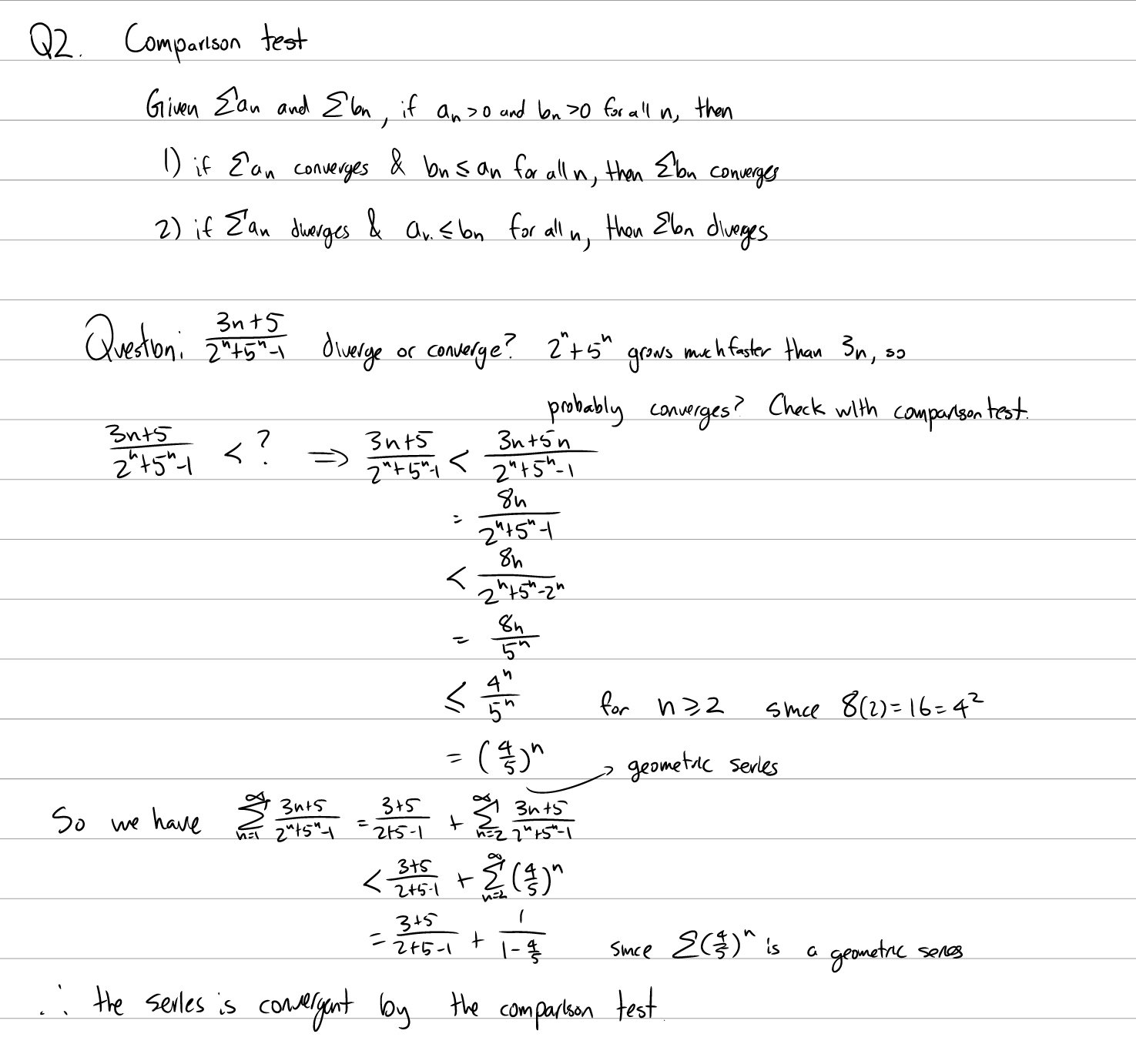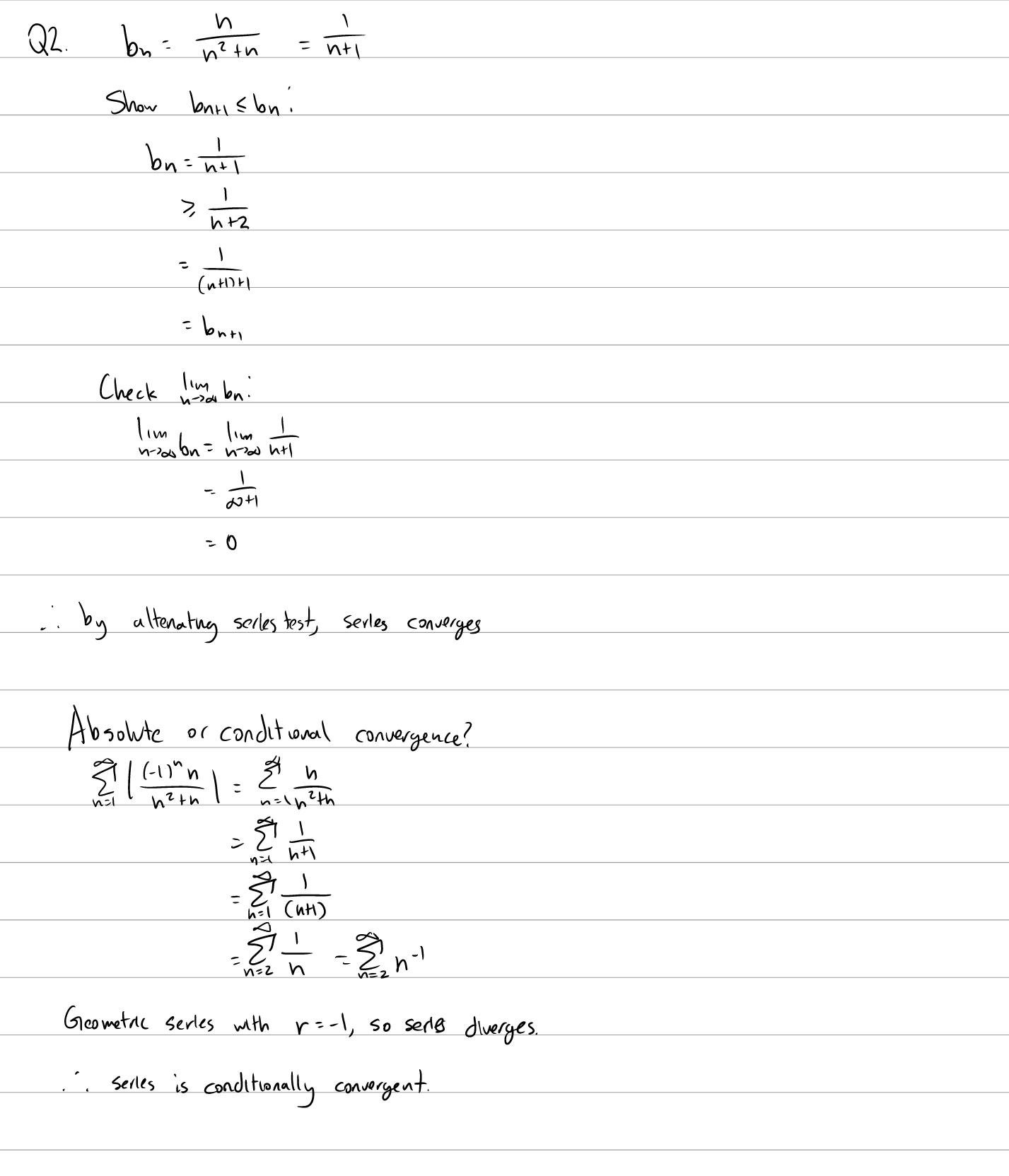Tutorial Week 11
Comparison Test
The comparison test states:
Given series \(\sum a_n\) and \(\sum b_n\), where \(a_n \ge 0\) and \(b_n \ge 0\),
If \(\sum a_n\) converges and \(b_n \le a_n\), then \(\sum b_n\) converges.
If \(\sum a_n\) diverges and \(a_n \le b_n\), then \(\sum b_n\) diverges.
Q1: Use the comparison test to show whether \(\sum_{n=1}^\infty \frac{3n + 5}{2^n + 5^n - 1}\) converges.
Alternating Series Test
The alternating series test states:
Given an alternating series in the form of \(\sum (-1)^n b_n\) where \(b_n \gt 0\), if \(b_n\) forms a decreasing sequence (\(b_{n+1} \le b_n\)) and \(\lim_{n \to \infty} b_n = 0\), then \(\sum (-1)^n b_n\) converges.


